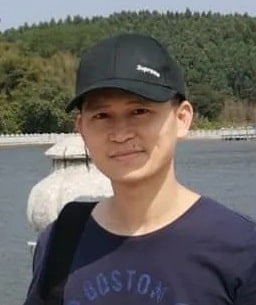Salary, Job Description, How To Become One, and Quiz
What is the job like

Life as a full-time researcher
It all began when I started my thesis to get my bachelor’s degree in Chemical Engineering. It was about analyzing, from an economic point of view, the commissioning, construction, and operation of a liquified natural gas plant.
The scope was broad as it included everything from the tropicalization of the technology to the economic analysis. So, as you might imagine, I had to invest a lot of hours. First, looking for information and getting to know the technology I was using to liquefied the gas. It takes a lot to understand these processes, mainly because they look so simple. But the way they achieve it is truly amazing.
Once I knew each piece of equipment, each pipe, each heat exchanger, and each pressure and temperature profile, I started to simulate the process. This was way more entertaining than reading. Using a processes simulator allowed me to determine how efficient the process was. Hence, giving me the variables I needed to improve performance.
With the simulation done, it was time to start sizing the equipment. Here I rely on previous knowledge and well-established rules of thumb. The sizing allowed me to draw the process flow diagrams, PI&Ds, and plot plans. Finally, all that was left was the economic analysis of each pipe, instrument, and piece of equipment involved.

PRICO – Setting the simulation up
What was my work as a researcher like?
You see, all research projects, regardless of their scope or time, have the same steps: The first is to search what other authors around the world have done something similar. It doesn’t have to be a 100% match. For example, in my case, no other author to this date has done the whole process from the simulation to the economic analysis. They always do something or the other. However, all information is valuable.
Experimentation is the next step. In my case, my experiments where the hundreds and hundreds of simulations do get to a decent result. It is the core of any research project. Thus, it takes time, patience, and an unhealthy number of cups of coffee. Nevertheless, it is the part that I enjoy the most. Producing results is beautiful. Besides, it is when you see all that reading paying off.
The last step is the drafting of the report. You need to summarize all the relevant results to present them to the world. In my opinion, it is the hardest step of all. You see, sometimes you can produce tons of data that cost you hours and hours. But no all of it is equally useful to the reader. Hence, you must think like the person who is reading the paper, not like yourself.
If I were to draft a process flow diagram for an investigation project, it is like this: Read, experiment, repeat.

Process flow diagram of the plant made by another fellow researcher
My key responsibilities
My key responsibilities as a researcher were to repeat that process as much as needed to produce results, investing as little time as possible. You see, research is a battle against time. The more you take, the fewer chances you have of making it public before another author.
Cons
So, what are the pros and cons of the job? The biggest con is payment. Here in Venezuela, the Universities don’t pay for your research because they don’t have the money to sustain themselves. So, the only way to get paid is by working with a company interested in your craft. I still investigate to this day. But as a side gig to spice my CV. You see, my dream is to make a master’s degree related to energy management. I believe working on these kinds of energy-related projects will give me the edge when I feel ready to enroll in a master’s program.
Time is the other drawback. Researching takes countless hours. Sometimes the result you find doesn’t get you anywhere. Thus, you have to start over. So yes, it is frustrating also.
Pros
So, why do it? Reaching is very fulfilling. Producing results, analyze them, and then write about them is beautiful. In addition, it keeps me in the loop with the latest trends in my field of interest, energy. Plus, you also get some recognition for all your work if you get to publish it, which I’m trying to do.
Lastly, the energy field is a little more dynamic. I don’t work in a laboratory doing experiments all day. I use my computer and the process simulator installed on it. So, I can pretty much work anywhere with an internet connection.
Additionally, the energy field is constantly changing. We pass from coal to oil to gas, which is particularly interesting.
Don’t know which career to pursue?
Take the career quiz to find careers that match your personality type.
Take The Career Quiz
